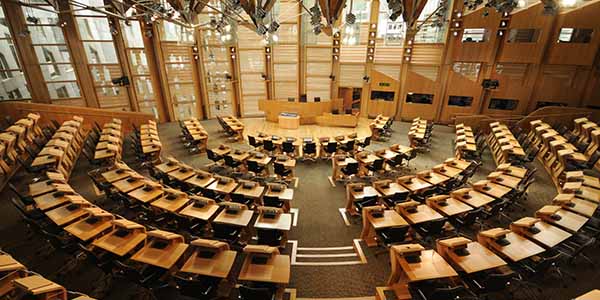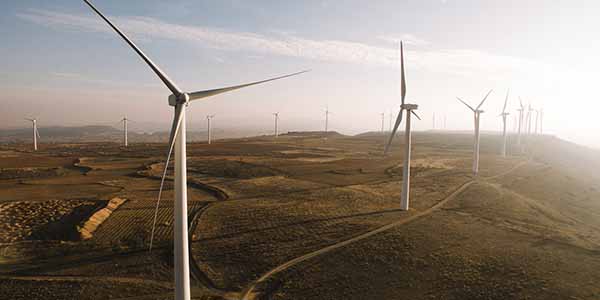Our research examines how the economy performs and evolves at a national and regional level, with a particular focus on applications to real-world challenges facing policymakers and business.
Research in applied macroeconomics has been a key activity of the Department of Economics for almost four decades. Our aim is to develop evidence-based theoretical models and to provide theory-informed and policy-relevant research, which is associated with high-level, high impact knowledge exchange.
Researchers in applied macroeconomics are broadly organised in three themes: applying and developing cutting edge econometric techniques to measure, monitor and analyse the economy; climate change and energy which looks at the interaction of climate and monetary and fiscal policies; regional accounting and modelling applied to a wide spectrum of regional policies ranging from trade, poverty and labour.
Example publications
-
Allan, G., Connolly K., Figus, G., Maurya, A (2022). “Economic impacts of COVID-19 on inbound and domestic tourism.” Annals of Tourism Research Empirical Insights, 3(2), 100075.
-
Byrne, J.P., Sakemoto, R. and Xu, B., (2020), “Commodity Prices Co-movement: Heterogeneity and the Time-Varying Impact of Fundamentals.” European Review of Agricultural Economics, vol. 47, pp. 499-528.
-
Comerford, D., Mora, S., Watts, M. (2022) “Meritocracy and the inheritance of advantage”, Journal of Economic Growth
-
Congreve, E., Connolly, K., Harrison, J., Kumar, A., McGregor, P., & Mitchell, M., (2022). “The impact of using an income supplement to meet child poverty targets: evidence from Scotland.” Journal of Social Policy, 1-17.
-
Darby, J., McIntyre, S. & Roy, G. (2022) “What can analysis of 47 million job advertisements tell us about how opportunities for homeworking are evolving in the United Kingdom?” Industrial Relations Journal, 53:4, 281-302.
-
Davidson, S.N., (2022) Regional Integration and Decoupling in the Asia Pacific: A Bayesian Panel VAR Approach, IMF Economic Review
-
Duparc-Portier, G., & Figus, G. (2022). “The impact of the new Northern Ireland protocol: can Northern Ireland enjoy the best of both worlds?” Regional Studies, 56:8, 1404-1417
-
Figus, G., McGregor, P., McIntyre, S., & Roy, G. (2022). “Trade-offs: understanding future trade options for Scotland.” National Institute Economic Review, 260, 26-39. doi:10.1017/nie.2022.7
-
Hauzenberger, N., Huber, F., Koop, G, & Onorante, L. (2022). "Fast and Flexible Bayesian Inference in Time-varying Parameter Regression Models." Journal of Business & Economic Statistics, 40(4), 1904-1918
-
Koop G., McIntyre S., Mitchell J., Poon A., (2022), “Reconciled Estimates of Monthly GDP in the United States”, Journal of Business & Economic Statistics
-
Wu, P., & Koop, G. (2023). “Estimating the Ordering of Variables in a VAR using a Plackett-Luce Prior.” Economics Letters, 230, 111247.
Funding
- Building a Suite of Subnational Socioeconomic Indicators for the United Kingdom: Opportunities, Challenges and Recommendations, Principal Investigator: Davidson, S.N., Co-Investigators: Connolly, K and Spowage, M, Funded by the: Economic Statistics Centre of Excellence
- Centre for Inclusive Trade Policy. Investigators: Black J., Figus G., Spowage M., Wooton , in collaboration with Sussex University. Funded by the Economic and Social Research Council (2022-2027)
- The sectoral economic impacts of COVID-19 on the tourism economy: a regional analysis focussed on Scotland, Principal Investigator: Allan G., Co-Investigator Figus G. Funded by the Economic and Social Research Council (2021-2022)
- Leading indicators of regional resilience – new methods for analysis, Principal Investigator McIntyre S., Co-Investigator Koop G. Economic Statistics Centre of Excellence a centre funded by the Office for National Statistics, 2023-2025
- Regional Nowcasting in the UK, Principal Investigator Koop G., Co-Investigator McIntyre S. Economic Statistics Centre of Excellence a centre funded by the Office for National Statistics, (Awards covering: 2017-2019; 2019-2021; and 2021-2023)
Knowledge Exchange Projects
- Addressing Data Gaps in Northern Ireland to Enhance the Availability of UK-wide Data. Principal Investigator: Connolly, K., Co-Investigator: Davidson, S.N., Funded by HMT's Economic Data Innovation Fund. Lead Partners: Northern Ireland Office, Northern Ireland Statistics and Research Agency and Department for the Economy Northern Ireland.
- Investigating the potential economy wide impacts of energy efficiency improvements in Northern Ireland. Principal Co-Investigators: Connolly K., Figus G. Lead Partners: Northern Ireland Department for the Economy, Energy Division




